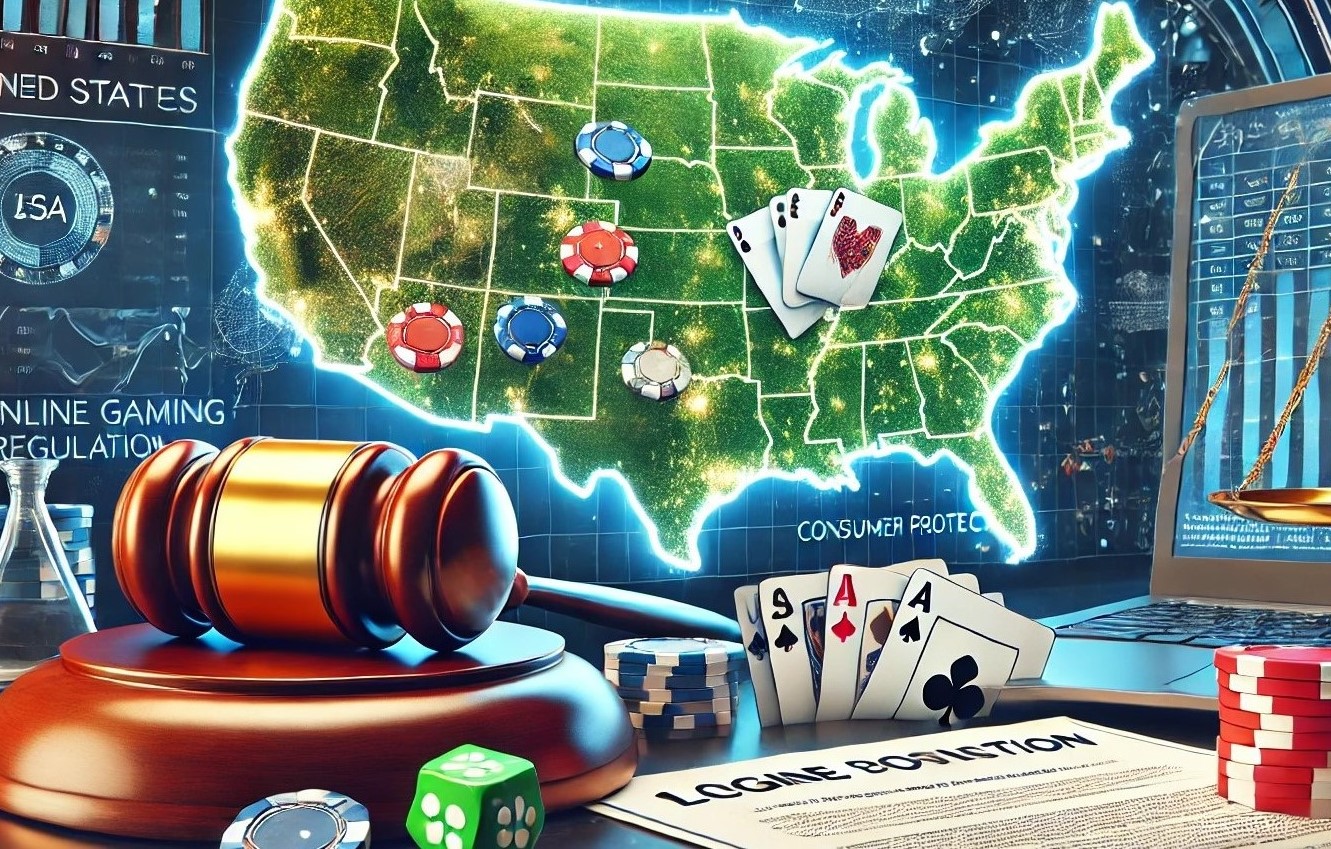NCLGS Introduces Sweeping iGaming Reforms and Ban on Sweepstakes

The National Council of Legislators from Gaming States (NCLGS) has introduced its draft Model Internet Gaming Act, aiming to establish a uniform framework for online gaming regulations in the United States. Designed as a resource for states considering the legalization of iGaming, the draft proposes measures addressing licensing, taxation, responsible gambling, and a prohibition on sweepstakes casinos. Public comments are open until December 31, 2024.
Framework Aims to Streamline iGaming Regulation
The Model Internet Gaming Act highlights the importance of consistent regulatory practices across states. Currently, iGaming is legal in seven states, each operating under unique frameworks. The proposed legislation seeks to unify these practices, emphasizing strict compliance, consumer protection, and responsible gaming.
Key provisions include:
- Licensing and Compliance: Operators must obtain five-year licenses and meet robust anti-money laundering (AML) and Know Your Customer (KYC) requirements. Suppliers must also secure licenses to participate in iGaming.
- Taxation Framework: The draft suggests tax rates of 15-25% on adjusted gross revenue, aligning with the U.S. average of 19%, excluding outliers such as Pennsylvania's 54% rate on online slots.
- Responsible Advertising: Advertising must avoid targeting individuals under 21 and refrain from using youth-oriented platforms. Promotions are required to feature responsible gambling messages.
The framework also aims to protect state lotteries, tribal gaming operations, and existing retail gaming establishments from adverse impacts.
Hardline Stance on Sweepstakes Casinos
A standout feature of the legislation is the explicit ban on sweepstakes casinos, which often operate in legal gray areas. Defined as games using chance-based mechanisms to award prizes, the draft categorizes them as illegal. Violators face fines ranging from $10,000 to $100,000 per offense, with repeat offenders potentially facing imprisonment.
This aligns with a broader industry effort to close loopholes. The American Gaming Association (AGA) has highlighted the risks posed by unregulated gaming machines, emphasizing the need for stricter oversight.
Streamlined Licensing for Established Operators
To accelerate iGaming adoption, the legislation proposes an expedited licensing process for operators already holding sports betting licenses in good standing. The draft also endorses participation in the Multi-State Internet Gaming Agreement (MSIGA), allowing shared player pools for online poker across state lines, including states like Nevada, New Jersey and Michigan https://www.realmoneyaction.com/betmgms-multi-state-expansion-unites-michigan-and-new-jersey-players/.
Collaboration and Next Steps
The draft reflects input from lawmakers, industry experts, and organizations like the Spectrum Gaming Group and the Massachusetts Council on Gaming and Health. NCLGS President Shawn Fluharty emphasized the collaborative effort, noting the legislation is adaptable to each state’s unique needs.
The NCLGS will host a public hearing at its December meeting in New Orleans to gather further input. The finalized Model Internet Gaming Act is expected to guide state lawmakers in crafting effective iGaming legislation, fostering transparency, and ensuring fair operations.
Source: NCLGS Proposes Model iGaming Legislation with Sweeping Reforms and Sweepstakes Ban, World Casino Directory, November 28, 2024.






